I wrote about how Germany's hard-line support for Israel's war in Gaza has severely damaged its image in Arab countries, where until recently it enjoyed a very favourable reputation. And what effects this is having on its soft power in the region.
foreignpolicy.com/2024/05/24/ger…
foreignpolicy.com/2024/05/24/ger…
Germany didn't join the Iraq war, took in one million Syrian refugees, and doesn't have the same colonial baggage in the region as France and the UK. Many saw it as a relatively benign power. Polls show that impression is changing drastically. 

Germany has a huge soft power footprint in the Middle East thanks to organisations like GIZ, the Goethe Institute, and foundations connected to its political parties.
Germany's stance on the war has directly impaired their work. Some staff and local partners have quit.
Germany's stance on the war has directly impaired their work. Some staff and local partners have quit.
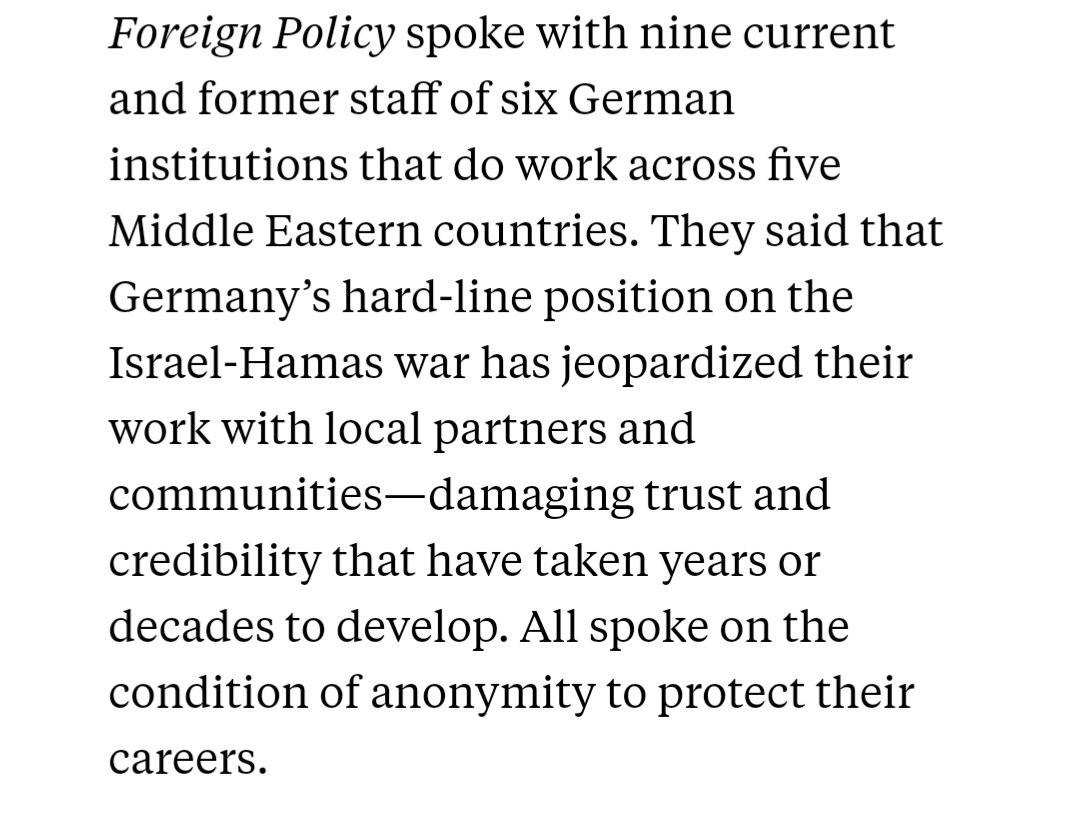
The German government considers accusations that Israel is committing apartheid or genocide to be false and antisemitic. But sources in German institutions in the Middle East told me that many of their colleagues believe the accusations to be true.


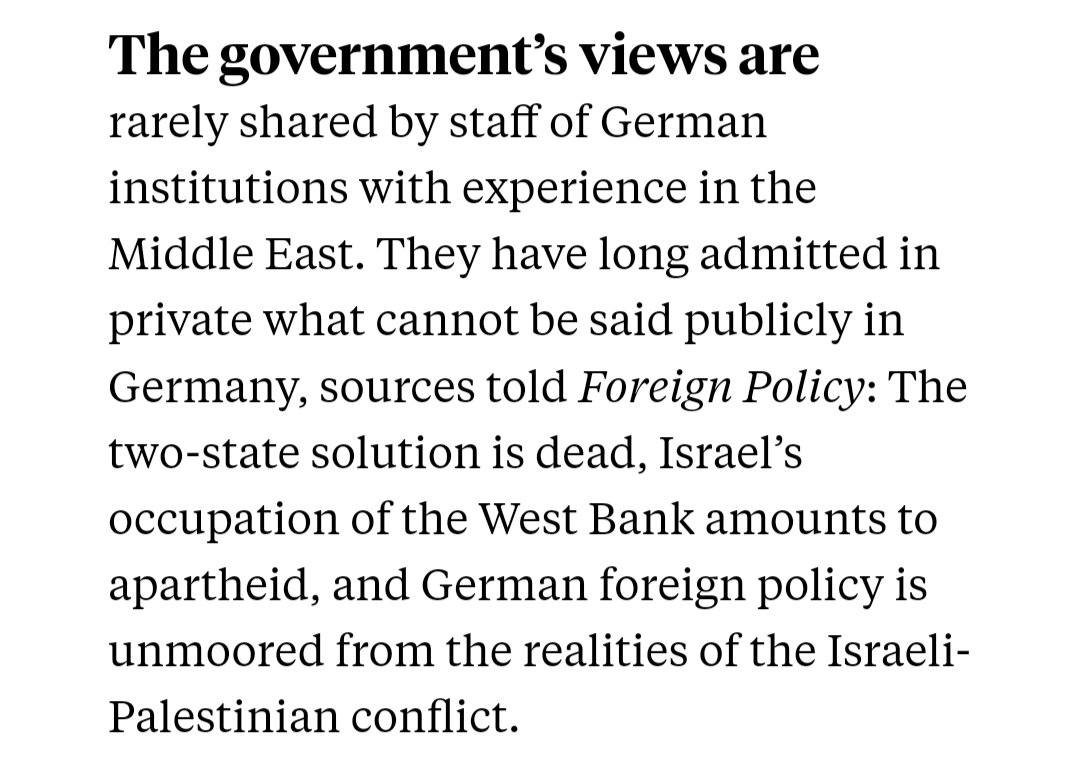
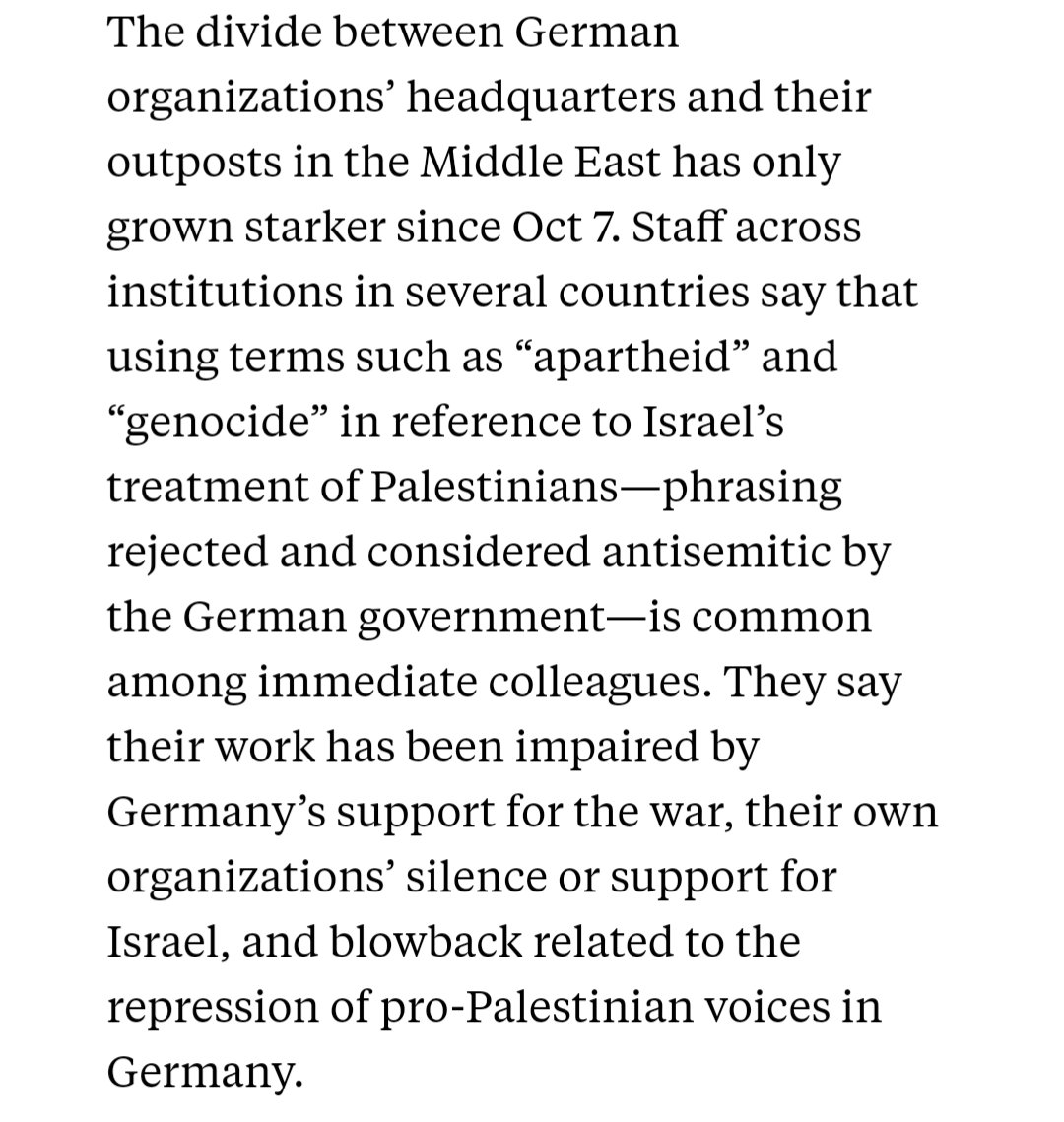
At development agency GIZ, many staff are outraged at its refusal to take a stance on the Gaza war, like it did with Russia's invasion of Ukraine. One source called the internal atmosphere "authoritarian." 
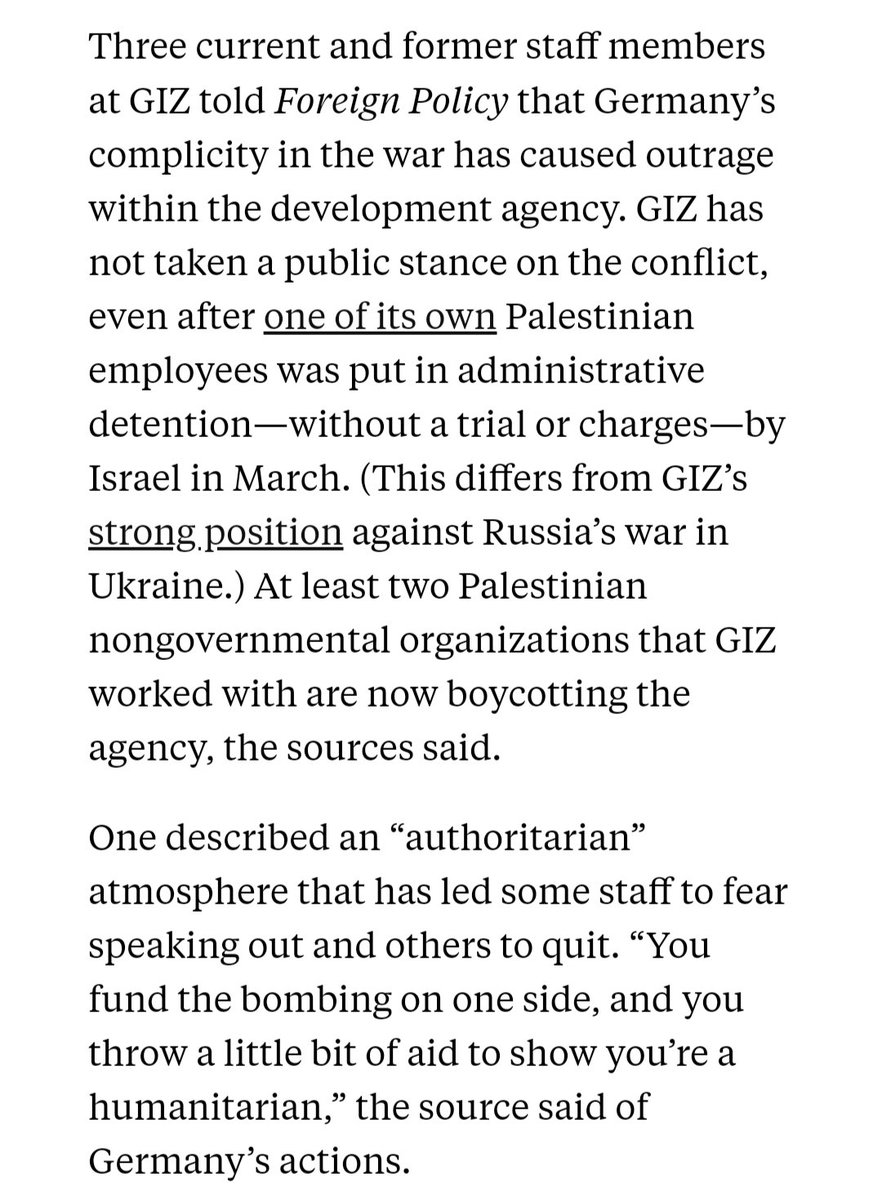
Staff in German organisations in the Middle East fear that the German government or media could link their local partners to e.g. BDS, and they would lose funding for their projects.
Germany has worked with Israel to strip funding from several Arab organisations since Oct.
Germany has worked with Israel to strip funding from several Arab organisations since Oct.
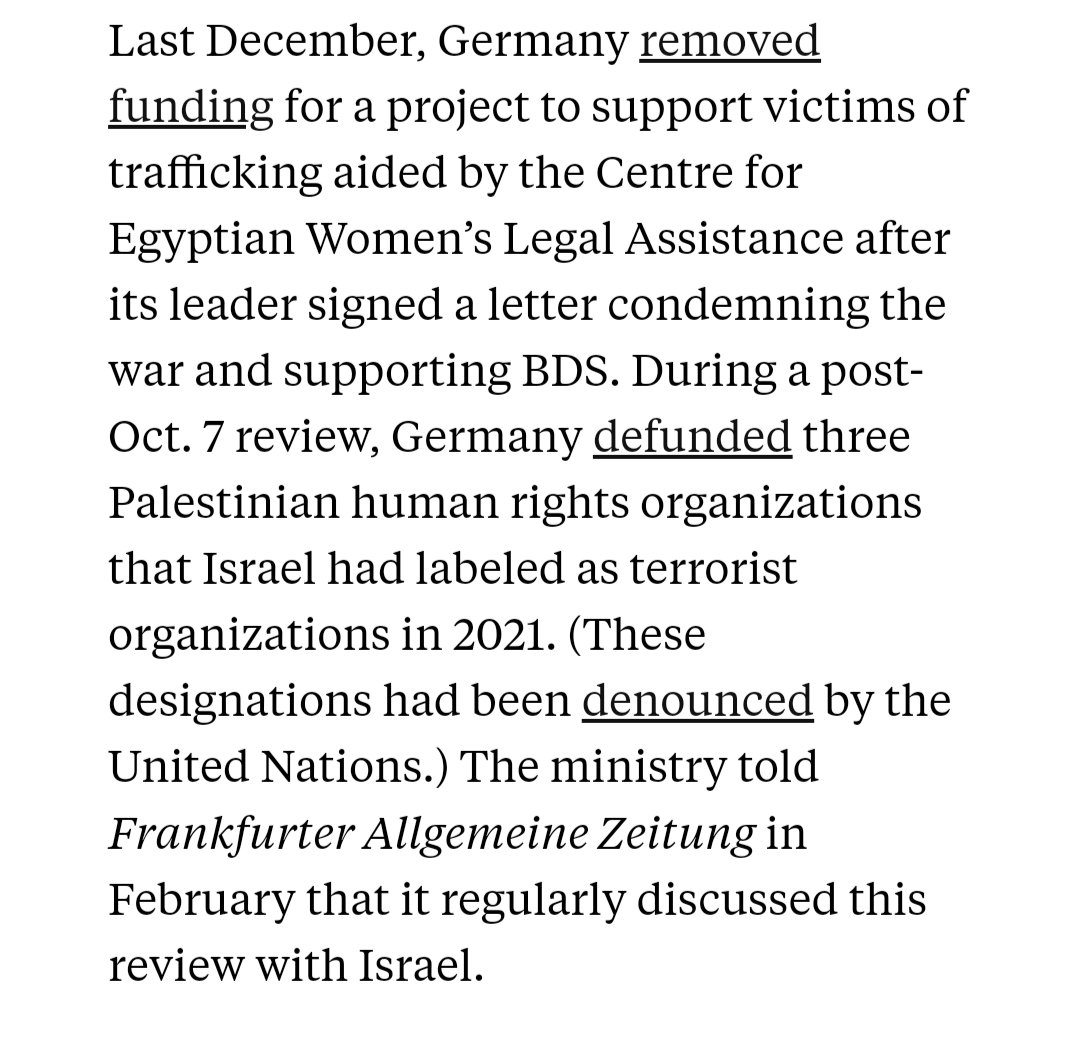
Many intellectuals and artists hoped Berlin would be a new centre of Arab cultural life in Europe.
Now, after months of silencing and canceling pro-Palestinian voices in Germany, the dream is over.
Now, after months of silencing and canceling pro-Palestinian voices in Germany, the dream is over.
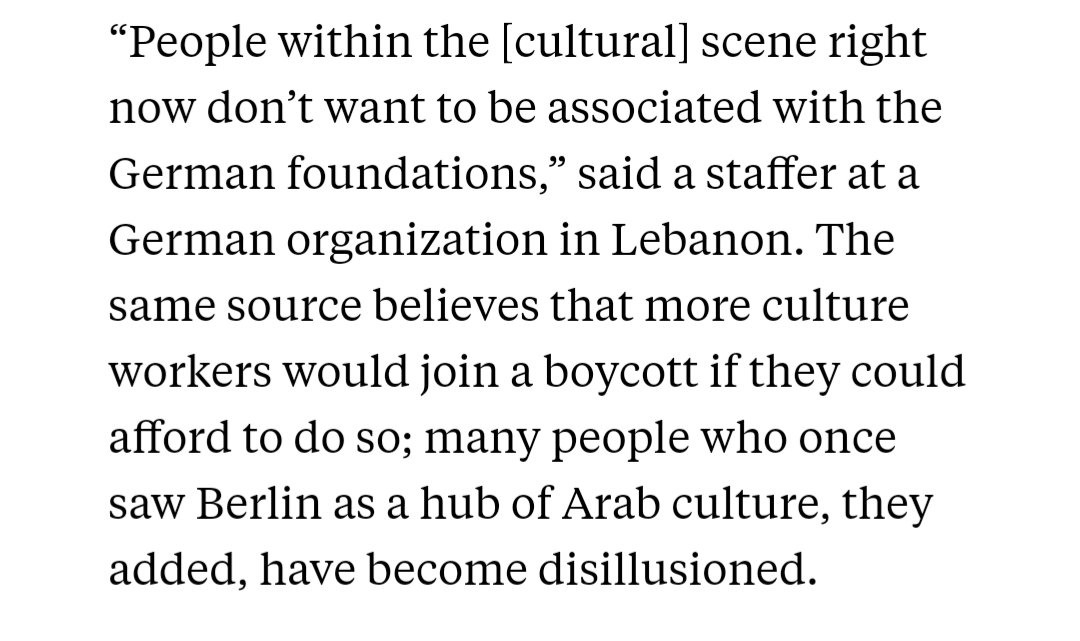
A non-paywalled link to the story archive.ph/xgsHL
• • •
Missing some Tweet in this thread? You can try to
force a refresh




